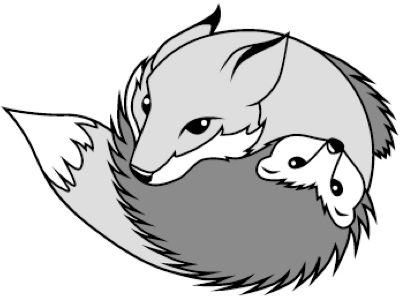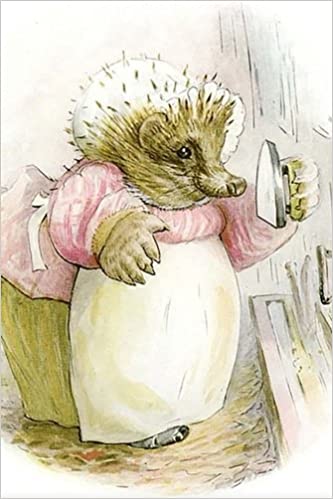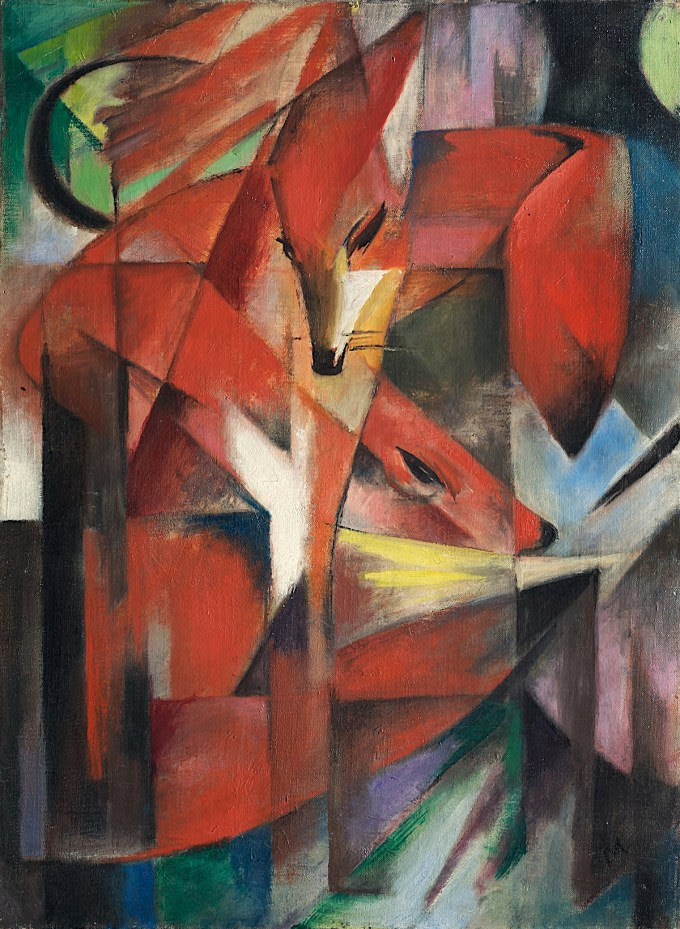Once more unto the breach, dear friendsThis time the Question is based upon the Epigram
(a brief, interesting, memorable, and sometimes surprising or satirical statement...
The presence of wit or sarcasm tends to distinguish non-poetic epigrams
from aphorisms and adages, which tend to lack those qualities.)

"a fox knows many things, but a hedgehog knows one big thing".
Wikipedia: a fragment attributed to the Ancient Greek poet Archilochus [680-645 BCE]
In Erasmus's Adagia from 1500, the expression is recorded as
Multa novit vulpes, verum echinus unum magnum.

***
Are You a Fox or a Hedgehog?
***
Isaiah Berlin (1909-1997), Oxford philosopher, is really to be blamed for bringing this trope into discourse, as the title of a 1951(ish) book The Hedgehog and the Fox: An Essay on Tolstoy's View of History. Berlin credits the friend who mentioned in conversation the (very obscure) verse fragment, at Oxford in the late 1930s, and said there had grown up a light-hearted verbal game, assigning writers and others to 'hedgehog' or 'fox'. Perhaps it was Berlin's opening paragraph that did it, and inspired copycats:
...taken figuratively, the words can be made to yield a sense in which they mark one of the deepest differences which divide writers and thinkers, and, it may be, human beings in general. For there exists a great chasm between those, on one side, who relate everything to a single central vision, one system, less or more coherent or articulate, in terms of which they understand, think and feel—a single, universal, organising principle in terms of which alone all that they are and say has significance—and, on the other side, those who pursue many ends, often unrelated and even contradictory, connected, if at all, only in some de facto way, for some psychological or physiological cause, related to no moral or aesthetic principle.
There's two kinds of people in the world.
Once rediscovered, the Foxes and Hedgehogs started turning up all over scholarly space. A few examples:
His essay treats ostensibly of Tolstoy's view of history. But it starts with a penetrating idea on Tolstoy himself. Let us divide writers into hedgehogs and foxes. 'The fox knows many things, but the hedgehog knows one big thing.' The foxes chase after everything in the world, never aiming at a single point, never acquiring a single vision. The hedgehog is dedicated and dominated, for him everything must revolve round a centre. It is easy to agree that writers fall into the two classes of those for whom the heavens have opened and those for whom they have not. Pushkin, for example, was a fox; Dostoevsky a hedgehog. But what is Tolstoy? Mr Berlin gives a brilliant answer which carries him through most of his essay: Tolstoy was by nature a fox, who believed in being a hedgehog. He had an incomparable gift for creating a picture of real life, building it up from endless details of individuals and events; and when he was off his guard he sometimes implied that if we could know every tiny happening, we would understand the causes of events. But when he pulled himself up and became conscious, he regarded this view as wicked. Somewhere there must be the secret of the universe, which was more than the sum of its parts. This secret always evaded him; and he became the more destructive of the answers given by others, because he had failed to find one for himself. (AJP Taylor)=====
Berlin's insight into the struggle within Tolstoy between his own natural 'sense of reality'—that of the 'fox' who 'knows many things' and is honestly aware of the multifarious facets of life in all their distinctness, and which resists all attempts at simplification and systematisation—and his desire for a simple, unified, harmonious vision of life as a whole. This irreconcilable conflict between instincts and aspirations, which Tolstoy strove and failed to resolve, ultimately made Tolstoy a tormented, tragic figure, as Berlin powerfully explains in the essay' s magnificent conclusion. (Joshua Cherniss and Henry Hardy)
=====
...an article by Paula Correa, which concludes sagely: 'For those who try to read [the fragment] today out of context, it rolls itself up like a hedgehog, and perhaps not even with all cunning may one disclose some of its meaning without doing it violence.'
=====
and Berlin's comment on all that:
You must be thinking that I have somewhere a desire to put it all together... You might be right, because one doesn't know oneself, but I'm telling you I never have felt a hedgehog in my life, or any temptation to be one. I've admired hedgehogs—Toscanini is a hero of exactly that kind. Akhmatova was a hedgehog. Oh, I'm impressed by them, I'm deeply moved by them, but not with them; and I don't walk the same earth with them. (in conversation with Michael Ignatieff, his biographer)
...and here's a link to an excellent NPR program on Fox & Hedgehog (38 minutes, but charming)
*****
But how did I get there? It really began with a project I'm working on to do with curating an emergent narrative of multiplexed connections I've had with computers pretty much my whole life.
...and I was thinking more broadly about my own Entanglements, making the listicle beginnings of a mapping of that/those mental territory/-ies...and happened to pick up David Post's In Search of Jefferson's Moose: Notes on the State of Cyberspace...one of the books I moved in the simultaneous project of re-organizing the Auxiliary Library
...and there was the Fox & Hedgehog epigram, from which dripped the temptation to pursue to the cited Isaiah Berlin source, and other Fox-Hedgehog material
...which I did for a day or so, just the sort of rabbit hole I adore to be lured into.
In a way the "are you a Fox or a Hedgehog?" conundrum is silly, but as Berlin himself said:
...like all over-simple classifications of this type, the dichotomy becomes, if pressed, artificial, scholastic and ultimately absurd. But if it is not an aid to serious criticism, neither should it be rejected as being merely superficial or frivolous: like all distinctions which embody any degree of truth, it offers a point of view from which to look and compare, a starting-point for genuine investigation.
All that said, I'm utterly, totally, irredeemably Fox. That listicle of Entanglements looks like this:- photography
- music
- geography/landscape
- words
- The Computer
- food
- curiosity [about things not already listed...]
...and I know so much about each one of those bulleted domains (selectively, to be sure) that I can barely keep still. The imagined task of MAPPING them, of hypertexting exploratory narratives, is marvelous to contemplate and would be a Work of Art if it was built. Truly a Ruckerian Lifebox
...With the thesis word, "lifebox," I meant a large database that might include, in my case, my books, my journals, my interviews, my photographs and perhaps an overarching memoir—with the various pieces connected by hyperlinks. A lifebox might resemble a large website. ...Our perceptual system is all about perceiving patterns—even if they're not there.
...If pressed, I might define "flurb" as a verb meaning "to carry out a complex, non-commercial artistic activity," and "flurb" as a noun could mean "a gnarly artwork that's incomprehensible to the average person."
...you never want to be high when you're giving a lecture. Why not? If you're high, then (a) everything seems a lot more important than it really is, and (b) the lecture seems to last for hours.
(from Nested Scrolls: The Autobiography of Rudolf von Bitter Rucker)


My own deepest interest at the moment is the Entanglements, of which it occurred to me today that Perhaps these are who I am..., or perhaps they are earmarks of the tribes I belong to. This morning as I listened to conversations around me as I waited for Hannaford to open, and then for Home Kitchen, I realized that I am NOT of the tribes
- concerned with the sub-rosa practises, situational ethics, and practical economics of lobstering
- concerned with pickup trucks: their cost, engine choices, etc.
- concerned with sportsing: with collegiate and NFL football, and with other "follow the team" fandom.



